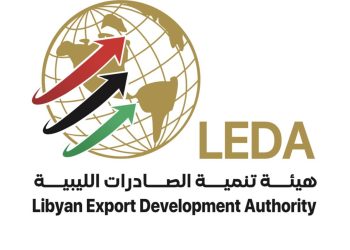By Sami Zaptia.

London, 4 January 2021:
The Tripoli Central Bank of Libya (CBL) approved on Thursday (31 December) new controls to regulate procedures to opening documentary credits.
The controls follow on from the CBL Board of Directors decision No. 1/2020 issued on 16 December regarding the amendment of the Libyan dinar exchange rate. The CBL stipulated that requests to open documentary credits for all goods and services permitted to be imported legally must meet the following conditions:
- Having a valid CBL bank code
- Banks must ensure that the data related to the entity requesting the opening of the credit are correct, and that there are no reasons preventing the continuation of dealing with it before starting the procedures for opening the documentary credit.
- The maximum value of a single documentary credit for the supply of commercial goods is US $ 5 million or its equivalent
- The amount of US $ 10 million or its equivalent for industrial goods
- The amount of US $ 3 million or its equivalent for services
- The initial invoice to be approved and issued by the exporting or manufacturing company or one of its authorized agents in the records of the exporting country
- As a minimum it must include all data related to the type, description, weight, quantity and price of the supplied good or service, and the country of origin, in a manner that does not conflict with the international norms that regulate documentary credits
- The account of the beneficiary abroad is in the same country from which the initial invoice was issued
- The value of the credit is fully covered by the available balance in the account when requesting the opening of the credit, and it is prohibited to grant credit facilities of all kinds to impose coverage of documentary credits when opened
- The entity requesting the opening of the documentary credit submits an insurance document for the supplied goods, to the bank to open the credit based on the initial invoice, issued by a local insurance company.
- An inspection issued by one of the local or international inspection companies, and the local inspection company is required to have a valid bank code (CBL-key), and the International Inspection Police is required to submit a statement stating that it has met the international standard requirements (ISO9001: 2015)
- The entity requesting the opening of the documentary credit must present the tax payment certificates and the security dues legally determined, and they are required to be original and recent.
- Due diligence in terms of matching the data in the invoice with the inspection certificate and certificate will be conducted and that the prices are consistent with the specifications of the imported goods and the prices regulating them.
- Requests for opening documentary credits must not contradict decisions issued by the competent authorities regarding determining the goods that are prohibited to import or export.
Conditions for buying hard currency for study and health treatment
In another announcement the CBL announced its conditions for the sale of hard currency at the new unified foreign exchange rate study and health purposes.
For purposes of studying abroad, Libyan citizens can buy
- A maximum of US$ 10,000 or its equivalent of other currencies
- This maximum is for one fiscal year per student
- Sales must be transacted using the National ID Number
- The amount will be credited directly to the university
- Citizens must submit an invoice for the costs of study issued by the educational institution
- This must include the account details of the institution
Health treatment abroad
- For health treatment abroad a maximum of US$ 20,000 or its equivalent
- This maximum is for one fiscal year per patient
- Sales must be transacted using the National ID Number
- The sales must be transacted through the personal purposes system








